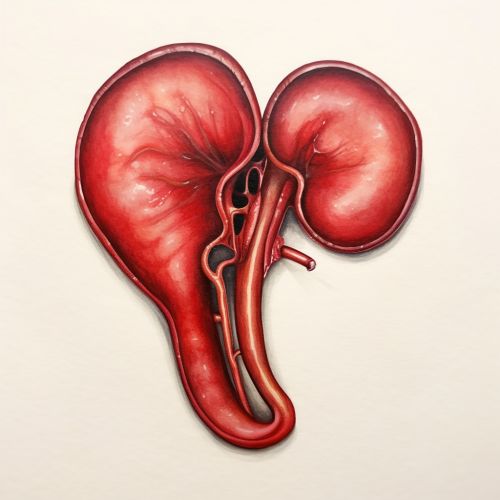Renal Failure
Introduction
Renal failure, also known as kidney failure, is a medical condition in which the kidneys cease to function adequately. This failure to perform their essential roles can lead to a dangerous accumulation of waste products in the body, potentially leading to severe complications. Renal failure can be categorized into two types: acute kidney injury (AKI) and chronic kidney disease (CKD).


Acute Kidney Injury
Acute kidney injury (AKI), previously known as acute renal failure (ARF), is characterized by a rapid loss of kidney function. This decline happens over a few hours or days and is usually reversible if diagnosed and treated promptly. AKI can lead to numerous complications, including metabolic acidosis, high potassium levels, changes in body fluid balance, and effects on other organ systems. It can also increase the risk of developing chronic kidney disease.
Chronic Kidney Disease
Chronic kidney disease (CKD), on the other hand, is a long-term condition characterized by the gradual loss of kidney function over time. CKD is often asymptomatic in its early stages, and symptoms only appear when significant kidney damage has occurred. CKD can lead to end-stage renal disease (ESRD), where dialysis or kidney transplantation is necessary for survival.
Causes
The causes of renal failure are numerous and can be broadly divided into prerenal, renal, and postrenal causes. Prerenal causes are factors that reduce blood flow to the kidneys, such as dehydration or heart failure. Renal causes directly damage the kidney tissue, such as glomerulonephritis or diabetes. Postrenal causes obstruct the outflow of urine, such as prostate enlargement or kidney stones.
Symptoms
The symptoms of renal failure can vary widely, depending on the type of renal failure (acute or chronic), the underlying cause, and the individual patient's health status. Common symptoms may include fatigue, loss of appetite, nausea, vomiting, sleep problems, changes in urine output, and cognitive difficulties. In severe cases, seizures or coma can occur.
Diagnosis
Diagnosis of renal failure typically involves a combination of clinical history, physical examination, and diagnostic tests. These tests may include blood tests to measure levels of waste products, imaging studies such as ultrasound or CT scan, and in some cases, a kidney biopsy.
Treatment
Treatment of renal failure depends on the cause and severity of the condition. In cases of acute kidney injury, treatment often focuses on addressing the underlying cause and providing supportive care. For chronic kidney disease, treatment may involve medications to manage symptoms, dietary changes, and in advanced stages, dialysis or kidney transplantation.
Prognosis
The prognosis for renal failure varies widely depending on the underlying cause, the patient's overall health, and the timeliness and effectiveness of treatment. Some cases of acute kidney injury may be reversible with prompt treatment, while chronic kidney disease often leads to progressive loss of kidney function over time.
Prevention
Prevention strategies for renal failure primarily involve managing risk factors for kidney disease, such as controlling blood pressure and blood sugar levels, maintaining a healthy weight, avoiding tobacco use, and limiting use of non-prescription medications that can damage the kidneys.
